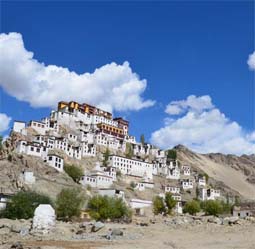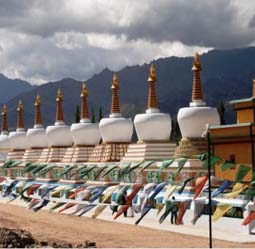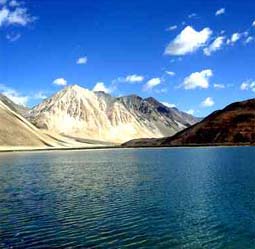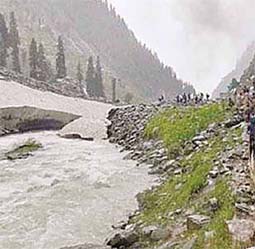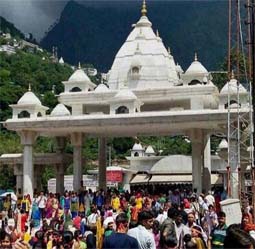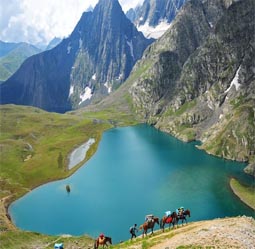Doodhpatri
Doodhpathri is a combination of twin pastures namely Parhacemaidan and Doodhpathri. These two bowl-like pastures present a sight of an earthly paradise. Two rivers, Shaliganga and Sokhnag, flow on either sides of the pastures. These rivers flow in an irresistible fashion. They flow into the areas of Budgam and Beerwah respectively. Therere many incredible stories associated with Doodhpathri. It’s said that an age-old strife between two brothers led to the separation of a single water body into two rivers. “One brother broke a treaty and the water got separated into two branches; one being sweet and the other being salty”, says Abdul Gaffar, a local horse-rider. But, the truthfulness of these stories cannot be verified. “All these stories are a pack of lies”, says Nazir Ahmad Dar, a writer and teacher from a nearby hamlet.
Doodhpathri stands out amongst other tourist destinations for its huge area. The fields and pastures are limitless. “Doodhpathri is unique in that it has an unbelievably large area on which expansions and development can be made,” says Altaf Hussain, Executive Engineer, DDA (Doodhpathri Development Authority). “Such huge and versatile natural marvels are not present anywhere else in valley.”
Doodhpathri and Parhacemaidan are sloping grassy landscapes with a diversity of multicolored flowers up to Changg. The famous Tosamaidan lies in the west. Beyond Shaliganga river is a snow-covered mountain range called Diskhil which presents an eye-catching sight. A massive green field called Dhandoran and a naturally built Stadium is a sight to see. The landscape is absolutely miraculous.
Natural beauty is not the only attraction in Doodhpathri; it’s unique in its geographical, geological and botanical significance too. The geological and monumental wealth of this place opens new doors for geologists and experts. “One more interesting feature of the region is that there are five underground brick kilns on the left side of Parhacemaidan. Centuries old, these ovens, over which big pine trees have now grown up makes one to sit up and ponder about their existence at this far flung and remote place where no human habitation is being witnessed since centuries, writes Bashir Mazhami in his journal “An Adieu” (2006). He further writes: “This opens the new areas to geologists and research scholars to deeply investigate into the samples of rocks, stones and earth after proper excavation and boost knowledge for generations to come.
 Wasturwan Travels
Wasturwan Travels